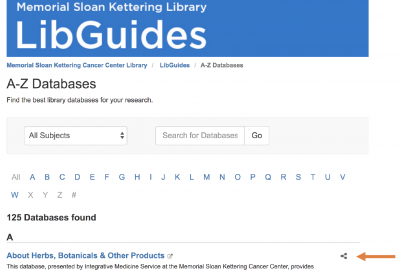Get to know Anthony Dellureficio, Associate Librarian, Data Management Services.

What areas can you help MSK users with?
Data Management Services is a new offering from the MSK Library. I’m eager to help MSK users with their data needs at all points in the research process from funding to publication and beyond. I’m available for consultation with individuals or entire labs for a wide range of support including: writing data management plans, understanding the data sharing/availability requirements of funders and publishers, providing best practices guidance (file naming/organization, format selection, storage, backup, documentation, version control, etc.), finding existing datasets, citing data for publication, and encouraging data reuse by making your data more discoverable while still providing appropriate protections for the data creators. Being that this is a new program, I’m also really interested in learning about any specific data needs or concerns of our community. Please reach out to me if you’d like to discuss!
What projects have you been working on recently?
We’ve recently launched a new library resource, the MSK Data Catalog. The catalog is a searchable and browsable collection of rich metadata records acting as a way-finder designed to enhance discoverability and maximize the usefulness of datasets related to MSK research. We hope this catalog will be a valuable resource to help researchers identify data that may inform their projects, connect them with data authors and experts, and promote greater exposure and reuse of their datasets! If you’d like to learn about this project, check out our announcement as well as the about page of the catalog
What is your favorite meal? And if you could travel anywhere in the world, where would you go?
I love to travel and I love to explore new cuisines, so these two questions go hand-in-hand for me. Most recently I’ve visited Morocco, Scotland, Sicily, and the tiny Mediterranean island of Pantelleria… and I ate delicious food everywhere I went. High on my list for future cultural and culinary travel are India and Portugal. I also really hope to be able to visit Venezuela someday. And of course, I always want to get back to my home-away-from-home in the Veneto region of Italy.


